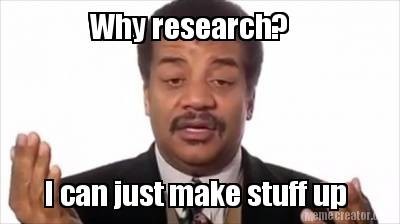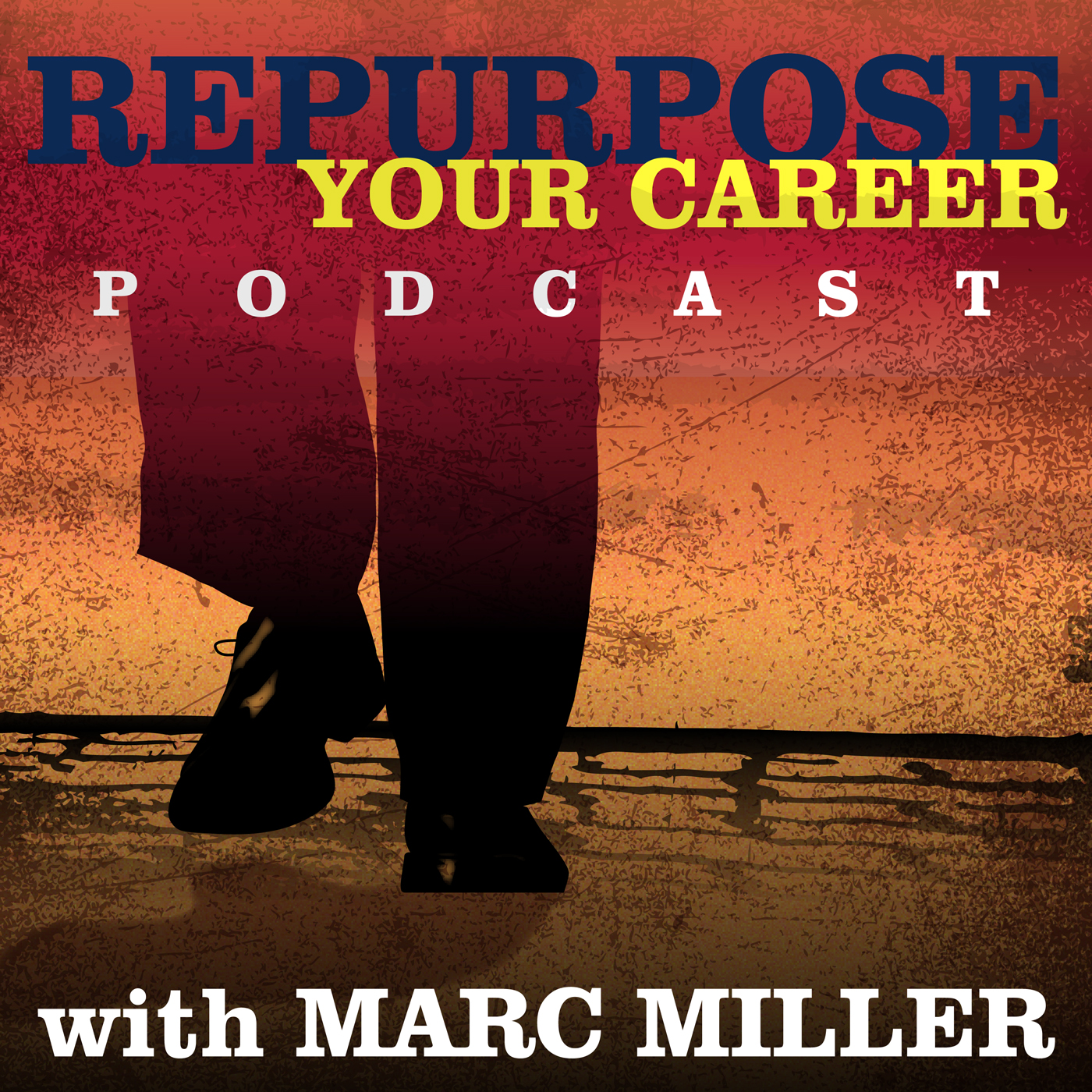Make Stuff Up Disorder
 I have written about Make Stuff Up Disorder multiple times including a whole chapter in my latest book, Repurpose Your Career – A Practical Guide to the 2nd Half of Life is dedicated to this topic.
I have written about Make Stuff Up Disorder multiple times including a whole chapter in my latest book, Repurpose Your Career – A Practical Guide to the 2nd Half of Life is dedicated to this topic.
If you would like to listen to a narration of this chapter MSU Disorder – The Grave Temptation to Make Stuff Up on the Repurpose Your Career Podcast.
Make Stuff Up Disorder is when there is a gap in our knowledge and rather than fill that void with facts, we just make stuff up.
I want to revisit this topic and give you 3 professional and 1 personal example.
Note: This post was originally published in September of 2017 and was updated in October of 2020.
Professional Example #1 of Make Stuff Up Disorder
Marcus is a very seasoned marketing professional who is in a dead-end job. He is very vulnerable to be targeted for the next layoff at his company.
Marcus had applied online for a director-level marketing role at a competing company. He appeared to be a very good fit but did not reach out to anyone at the company even though he had multiple good contacts.
2 weeks after applying, Marcus was furious that no one had responded to his application. In his eyes, he was a perfect fit and they should have been thrilled that he applied.
My response was, “you have no idea why they have not responded.”
I asked him, “Don’t you have a contact at the company?”
His response was “yes.”
I told him to contact this person and see if they could find out what had happened.
Whenever you do not know why something has occurred, rather than make stuff up and cause yourself stress, take action over things you do have control over. I previously wrote about this topic in the post, When Uncertainty Strikes, Focus on What You Can Control.
Marcus contacted his friend at the target company and asked if he knew the hiring manager. He did.
Marcus’s friend asked the hiring manager why he had not contacted Marcus about the position.
He responded — “He had never seen his resume.”
It was all due to a crappy applicant tracking system (ATS).
Marcus then was able to send his resume to the hiring manager directly ,where he was quickly granted an interview. He was a finalist for the position but lost to an internal candidate.
Lessons learned:
- Use your contacts before you apply
- Quit making stuff up when you do not know
For More: Do You Suffer from Make Stuff Up Disorder?
Professional Example #2 of Make Stuff Up Disorder
Sarah had a grueling interview with a major technology company. She sat in a room for about 8 hours and with the exception of lunch did not leave the room. She was probed, prodded, and interrogated by 7 people over 8 hours. It was an exhausting process and after it was all done, the recruiter told her that they would be contacting her.
The first week passed and she heard nothing.
A second week passed and she heard nothing.
I met with her late in the second week, and Sarah was pretty down. She was convinced that she would not get the position.
I asked her “how do you know that?”
She responded, “they would have responded by now.”
I answered, “you have no idea why they have not responded.”
At the beginning of the third week, she heard from the hiring manager via email. The hiring manager and the team leader both had been out of town and did not have a chance to talk since the interview. He apologized for not responding earlier but she should be hearing something in the next week.
As it turns out Sarah did not get the job but she thoroughly impressed everyone and the recruiter was able to give her valuable feedback about her performance during the interview.
During the interview process, you need to keep your emotions in check and not make stuff up. I wrote about this in my post, Emotions and the Job Search – Creating a Blank Slate.
For More: 3 Treatments for Make Stuff Up Disorder
Professional Example #3 of Make Stuff Up Disorder
Steve is a member of the Career Pivot Membership Community. He has been a research professor at a major university for the last 20 years. Steve has reached a point in his career where all he does is chase funding for the next project. He does not get to do the work he loves.
He made the decision that he would like to pursue a policy position at a foundation or an equivalent organization. At the same time, he discovered a fellowship that if accepted would train him how to do policy type of work while still being able to maintain his position at his current university employer. The fellowship would fund his salary for one year. The only catch is he would need to get his boss’s permission.
Steve was sure that his boss would never approve and therefore was afraid to ask.
In his weekly meeting with his community accountability partner Ann, he kept telling her that he would never approve the request. He had been working for his boss for almost 20 years and he just knew what the answer would be.
Ann gave a proverbial kick in the butt to Steve and demanded he go ask.
The next week Steve had his regular weekly meeting with his boss and told him about the fellowship and his response was ….. “How can I help?”
Steve totally made up everything and caused himself a lot of stress.
Personal Example
Make Stuff Up Disorder shows up everywhere in our lives. Last week, my wife had a major Make Stuff Up event.
My wife has had an on-and-off-again relationship with her parents. When she changed her first name about 10 years ago her parents did not talk to her for several years. They are back on good terms.
For a variety of reasons, including being ill when out of the country, my wife was late in sending her mother a birthday present. Birthdays are a big deal in my wife’s family.
When my wife’s birthday was approaching, she kept a lookout for a card or a gift from her mother.
Nothing came.
On my wife’s birthday, she worried that her mother was miffed at her for being late sending her mother’s birthday gift.
Her mother called late afternoon to wish her a happy birthday and told her that her gift was delayed due to Hurricane Harvey. Her parents live in rural east Texas and all of their snail mail goes through Houston, which has now been diverted to route through Dallas. All of the mail was delayed.
My wife later told me that she was acutely aware of how she just made stuff up and caused herself all kinds of stress.
Do You Have an Example?
I bet you do. We have all done this in our professional and personal lives.
If you tell me you have never done this … well … I do not believe you.
Marc MillerLike What Your Read? Get Career Pivot Insights
Do You Need Help With ...

Check out our Help Center where you have access to 14 different content portals.



Great article! It’s tempting to fill in gaps when we lack information, but this is a good reminder about not making assumptions.
Thanks Vicki!
I am really good at making stuff up. I am in sales and it is real easy to do. Especially when you do not hear back from a prospect. Buyers are notorious for not calling sales people back. I know. I do it to sales people all the time. When they don’t call you back it is easy to assume they have decided to go in another direction. This is not always the truth as on numerous occasions I have had potential customers call me back months after I had last left a message and tell me they were ready to move forward.
In sales it is real easy to MSU.
Just like when the recruiter does not call you back and you really have no idea why they did not call you back.